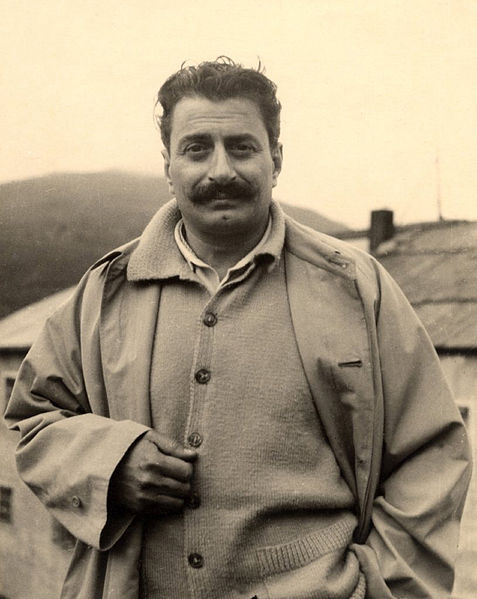Corrado Gnerre
I am a student majoring in literature. I decided to do a thesis on Giovannino Guareschi. But before going into the study of the writer by Emilia Romagna (in northern Italy), I would like to know if his writing was authentically Catholic. There are conflicting opinions on this. Since your writing is keen to be faithful to good doctrine and since it is also interested in artistic expressions, I thought I could use some clarifications from you. Thanks.
Dear (…), Giovannino Guareschi was not only a great Catholic writer and humorist, but what is even more significant is that he is a great Catholic philosopher. Certainly his was not a philosophy in the common sense of the term: he never formulated a systematic thought; but it was still a very specific thought. It was the thought of “common sense,” that is, an authentically Catholic thought. Reading his stories, one thinks of the world as it is: small, small. It is no coincidence that the Emilian writer called the scenario of his short stories “small world.”
But, dear (…), what smallness are we talking about? That of simplicity; which, however, is philosophically great, very great, because it is linked to that “common sense,” which in turn is an infallible judgment of what happens. It is written “common sense,” but it reads “good feeling”: the ability to judge exactly, in a human and balanced way, without being trapped by ideologies and abstractions of any kind, without pretending to “close” the real into intellectual and subjective categories.
Let’s take an example: to demonstrate that God exists, arguments of high philosophy are not necessary, it is enough to be amazed at the beauty of creation. And this possibility belongs to everyone; indeed, it is particularly of those who keep a simple soul, rather than those who fall into a useless intellectualism. This is why Jesus indicated the condition of the child as the indispensable condition for going to Heaven.
But, dear (…), let’s go back to the Emilian writer and his clear philosophy. The greatness of Guareschi was to be able to identify in his characters that common sense I spoke of earlier, to have been able to identify it in everyone, even in those who fought on the wrong side. Suffice it to recall the episode of the very communist Peppone who asks for Baptism for his son, wanting to impose on him the name of “Joseph, Stalin, Lenin”; and, to Don Camillo’s peremptory refusal, he does not say it clearly, but with his decomposed reaction he almost manages to “catechize” the curate of not being able to refuse a sacrament which is necessary for salvation. For an Orthodox Communist, that is a lot to say! He will then yield on his name, also inserting “Camillo.” Here there is all the poetry of common sense, the affection for a tradition of the fathers that not even an ideological “faith” of that magnitude can scratch. There is a heart that has still remained simple, even if the mind is somewhere else.
I know that this way of Guareschi to describe his characters has not been well digested by everyone. The Emilian writer was also accused of not having understood the tragic nature of communism; almost of having understood it as a sort of “crazy Christianity” (to put it to Maritain, that is, an ideology that is wrong only for its atheism and nothing else) and not as an “intrinsically perverse” ideology (as Pope Pius XI rightly stated).
These are accusations that I can understand, but that I do not agree with. And I do not agree with them because Guareschi, by presenting his characters in this way, not only manages to demolish any ideology against man, but, with regard to communism, equally manages to demonstrate its intrinsic perversity. So intrinsic and so perverse that even the most orthodox Communist is forced to behave and live in a diametrically different way than the ideology imposes on him … as long as he is like Peppone, that is, his “common sense” is still there, to guide it.
Dear (…), there are those who have defined Guareschi as a sort of “heretic of laughter”; and indeed he was. “Heretic” of what is nowadays called “politically correct.” On the one hand, he made people have fun, not hiding his political sympathies and making it clear on which side the reason was (and it is no small thing if you think about where culture was going in those years); on the other hand, it has re-proposed “common sense,” that healthy realism, which in years of philosophical triumph of situationism (there is no objective morality but every action is judged situation by situation) and nihilism (there is no value), really constituted a heresy.
(From La buona battaglia. Apologetica cattolica in domande e risposte, 2019©Chorabooks. Translated by Aurelio Porfiri. Used with permission of the publisher. All rights reserved. Photo from Wikimedia Commons)


 Follow
Follow


